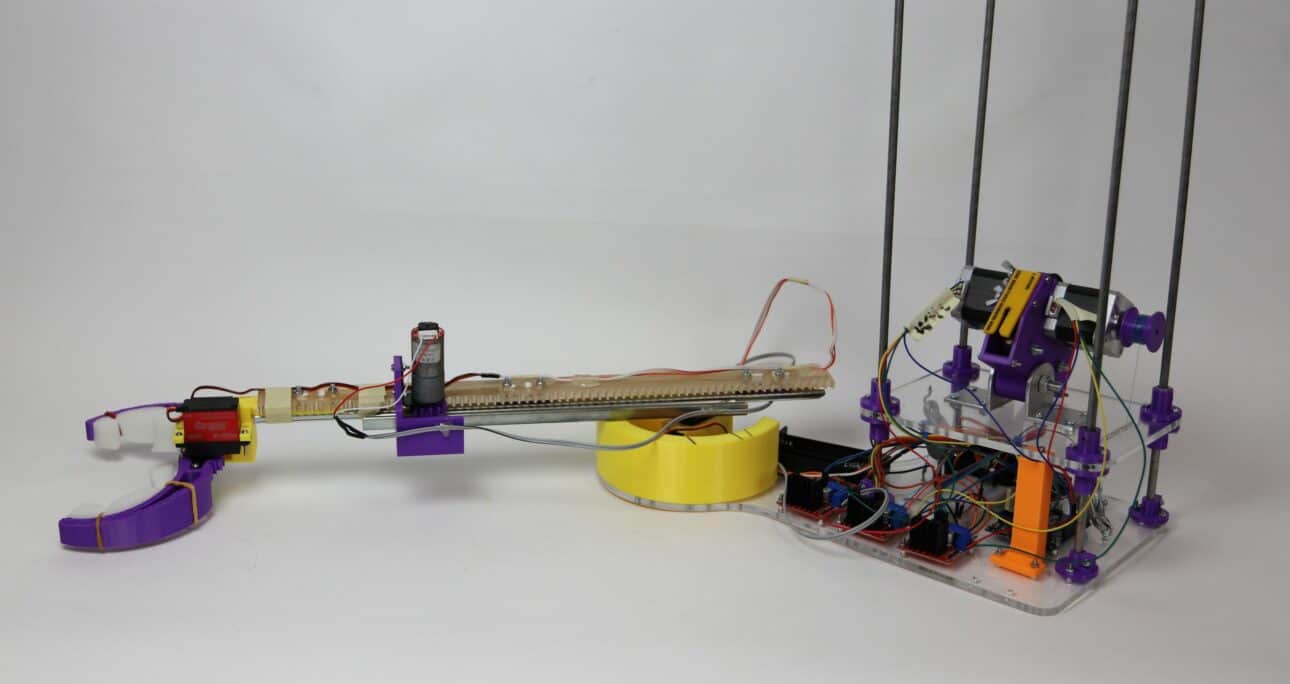Engineering and ICT practice focuses on problem-solving and design, whereby artefacts are conceived, created, modified, maintained and retired (lifecycle assessment). Graduates must have capabilities to apply theory and norms of practice to efficient, effective and sustainable problem solution.
Threshold Learning Outcomes for Engineering and ICT
The THOUGHTFUL:
During my mechanical engineering design course, I was part of a team of four students tasked with designing and building a robot that could complete a complex challenge. This required us to generate concepts, assess each concept, design and build a prototype, and finally test and refine the robot, while also producing an engineering report.
The task was to design and build a robot that could complete an obstacle course. The requirements were for the robot to pick up a package from the starting area of a table, then suspend and move across a wire rope the length of the table, drop the package at the other side, and finally the robot should return to the starting position.
To successfully complete the task, I and my team took the following steps:
- Apply problem solving and design methodologies: We used problem-solving and design methodologies to generate concepts and assess each concept. We then used this information to develop a design that met the specified requirements.
- Innovate approaches: During the design process, we encountered many challenges that required us to think of innovative ways to create solutions. We worked together to brainstorm ideas and consider alternative approaches until we found the best solution.
- Demonstrate information skills and research methods: We used information skills and research methods to gather data and information that was relevant to the task. We also used this information to inform our design decisions and to make informed decisions throughout the design process.
Our team was one of only a few successful teams to complete the challenge and to also earn a high distinction in the course. Our approach to problem-solving, design, and decision-making, as well as our innovative solutions and use of information skills and research methods, were all critical to our success.
Through this experience, I learned that the design process is a journey that cannot be skipped. I also learned the importance of being flexible in my approach and considering ideas from everyone. I realized that the success of a project depends not only on the design but also on the team’s ability to work together effectively and use their skills and knowledge to overcome challenges.
Moving forward, I plan to continue to use the skills and knowledge I gained from this experience in future projects. I also plan to continue to develop my problem-solving, design and decision-making methodologies, and to be more innovative in my approaches to synthesizing alternative solutions.




